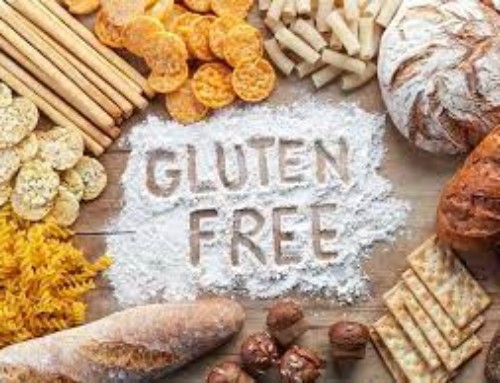Will you be one of the 45 million Americans who will go on a diet this year? Before you commit time and money to the latest and greatest weight loss program, here’s a newsflash: Diets don’t work.
We spend nearly $40 billion on diets each year, yet Americans are fatter and sicker than ever! Despite our obsession with dieting, most popular diets are actually doomed to fail.
To kick off the New Year, I’d like to debunk a few popular weight loss myths and provide you with some tips to healthy weight loss and weight control so that you never have to diet again!
The starvation myth: Eat less + exercise more= weight loss
Some people simply can’t lose weight even though they are eating less and exercising more. In frustration, many dieters have resorted to serious calorie-cutting in order to shed pounds, only to regain the lost weight and then some! The problem with this type of chronic low-grade starvation diet is that it leads to a loss of muscle. As a result, metabolism slows down and fewer calories are burned off. One of the keys to permanent weight loss is knowing your resting metabolic rate (RMR) and eating enough to keep your body out of starvation mode.
The calorie myth: All calories are created equal
Now that you know restricting calories doesn’t help you improve health or achieve permanent weight loss, you might be tempted to head to McDonalds for a burger, soft drink and a large side of fries. But wait –the type of calories you consume, not just the amount, makes a huge difference in your weight and overall health. All calories are not created equal.
Your food choices actually have an effect on your metabolism and your weight. What you put in your mouth contains information for your genes that control your metabolism.
Processed foods send the wrong messages to your genes; messages that promote weight gain, hormone imbalance, inflammation, and more. Your body simply has no idea how to process fake foods, which is why the Standard American Diet (SAD) is implicated in so many chronic diseases.
Following a whole foods diet will send the right messages to your genes. That’s because your genes know exactly how to interpret the information they receive from whole foods. Foods designed by nature keep you at a healthy weight and keep your metabolism finely tuned.
While there is no perfect diet for everyone, there are some basic “food rules” that we all should follow: Eat whole foods that are as close to their natural state as possible and eliminate processed foods, junk foods, sugary drinks, etc. This is a sure way to optimize your health!
The fat myth: Eating fat makes you fat
Eating fat can actually make you thin. But as is true with calories, all fats are not created equal. Americans have tried for over thirty years to improve health by reducing fat intake. Judging by the current obesity epidemic, the low-fat trend hasn’t worked. A full two-thirds of the U.S. population is overweight. We’re eating less fat but we’re getting fatter. This is the “American Paradox”.
Despite what you’ve heard, our bodies actually need fat for proper functioning. In fact, the human brain is made up of 60% fat! So why does government policy promote low-fat diets? There is evidence suggesting this policy has been promoted primarily for the financial gains of some of the most powerful corporate entities in the United States. Medications for treating high cholesterol are among the best-selling drugs in history. And low-fat packaged foods are a major source of revenue for the food industry, which spends more than $33 billion annually on advertising to promote these products.
The type of fat you eat is very important. “Good” fats include essential fats such as omega-3 fats, monounsaturated fats, and some saturated fats. Excellent sources of omega-3 fats include wild fish, flaxseeds, walnuts, pumpkin seeds and hemp seeds. Excellent sources of monounsaturated fats include extra virgin olive oil, almonds, Brazil nuts, cashews, avocado, and sesame seeds. Although saturated fats should be kept to a minimum, it’s okay to include some in your diet. Better saturated fats include organic coconut products, raw dairy and grass-fed animals.
Unhealthy fats are hard to avoid if you follow the SAD. These “bad” fats include most commercially available vegetable oils, most saturated fats, and worst of all, trans fats. Commercial vegetable oils are so over-processed that the end product has very few, if any, of the initial health benefits of the fresh oil. What’s worse, commercial processing introduces dangerous toxic substances that can be extremely harmful to your health. Saturated fats from beef, pork, lamb, chicken and dairy can be harmful if the animals are feedlot-raised as opposed to pasture-raised. Feedlot-raised beef contains 500 percent more saturated fat than grass-fed beef (and grass-fed beef contains beneficial omega-3 fats)!
Stay tuned for part II of Why Diets Don’t Work. Until then, make every bite count!








Leave A Comment
You must be logged in to post a comment.